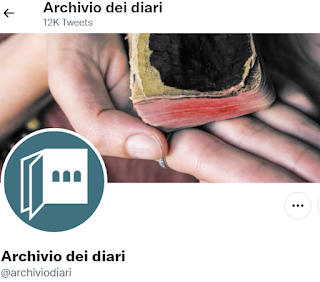The mourning began before he ever died. Maybe that's the way it always is. In our case, my father lingered for more than a year, as he faded away from end-stage blood cancer. So much of what made him Daddy was wiped out in that year. I suppose once something is snatched from you, you begin to mourn. And I certainly feel his vigor was snatched from us, from me.
So I contemplated what had been lost through music during the long car rides from my home in Connecticut to the Jersey Shore when I would visit my parents and take care of my Dad. Sometimes I simply regressed to my teen years and trawled the dial for any kind of 80s music (I'd like to thank Joan Jett, Axl Rose, Prince and Billy Joel for their support in my time of need.). Or I would nestle myself into the sounds of the New York stations I knew growing up, especially Fordham's WFUV and Columbia's WKCR (many of the others I once loved are now defunct).
(Yes, yes it's all available via streaming, but listening to the radio in the car always feels right, and once I left the hinterlands of Connecticut behind me, it was a joy to tune into the NY stations -- the best of college radio, no doubt).
Listening to WKCR was particularly apt because my father was a big fan, and as I've mentioned here, the station blessedly still broadcasts shows recorded by Jazz aficionado Phil Schaap, even though he died in September. One day as I sped up the Garden State Parkway, I lucked into a Charlie Parker birthday marathon broadcast. (Oh lord I just grasped this idea: my father and Phil Schaap died during the same year! How odd, that tiny shard of a coincidence brings me a tiny shard of comfort. They are for better or for worse together among the People We Lost in 2021).
The car rides were necessary time machines, indulging my need for nostalgia, for returning to the years before illness changed everything. I'd always enjoyed my visits to their house on the Shore, impromptu mini-vacations that included trips to the beach and lots of conversation on the porch (my father even placed a lamp out there to read at night -- sheer delight). But in the past year (really two), these visits were turned over to pharmacy runs, grocery shopping trips, pill-counting drills.
In that interim space between leaving their house -- leaving a kind of purgatory, inasmuch as my parents were stuck in limbo, my father gravely ill but still alive -- and arriving back home to Leo (ideally with a smile on my face), I needed a few moments to reflect on the void I'd slid into. He was dying, there would be no reprieve and anything I'd planned now meant nothing.
And as I surfed the dial, my beloved 80s music, Phil Schaap's voice, and 1010 WINS traffic updates formed part of the soundtrack in the void (I'll gladly give you 22 minutes, my 1010 WINS friends).
Other times I sought out specific songs on my phone. A few from my mourning soundtrack:
Adele's "Hello" ("I'm sorry for everything that I've done")
Stevie Wonder's "If You Really Love Me"
Paul McCartney and Wings, "Silly Love Songs"
Francis and the Lights, "May I Have This Dance?"
U2, "One"
U2, "Cedars of Lebanon"
Louise Attaque, "Du Nord Au Sud"
Handsome Boy Modeling School, "The Truth"
Maria Callas, "Casta Diva"
Luca Carboni & Jovanotti (live), "Mi Ami Davvero"
Vienna Boys' Choir, "Little Drummer Boy"
Chrissy Hynde, "Have Yourself a Merry Little Christmas"
John Lennon, "God"
Van Morrison, "Saint Dominic's Preview"
Amy Winehouse, “Tears Dry on Their Own,” (from “Amy Winehouse at The BBC”)
Smashing Pumpkins (cover), "Never Let Me Down Again"
The Grateful Dead, "Brokedown Palace"
Steve Winwood, "Take It to the Final Hour" (refrain: "What my father says...")
Elton John's "Your Song"
Bruce Springsteen, "Jungleland"
Ravel's "Bolero" (almost impossible for me to separate this work from my parents since it's probably the first work of classical music I can remember loving; I believe I'd already heard it by the time Torville and Dean used it -- to great effect -- in the Olympics)
*
During the final car ride home the night before he died, I played Stevie Wonder's "If You Really Love Me" over and over. It had popped into my head, for reasons unknown, and it plunged me into nothing short of a river of tears. I don't necessarily think the words apply to my specific situation -- my father loved me all right, he even said I was his twin! -- I merely think the desperate need for love at the story's heart reflected the particular ache of seeing my father so close to death. At times during his convalescence, I thought, 'Let this cup pass from Mommy.' But alas.
In another post, I will tell you the ways a movie called "The Straight Story" aided and abetted my precocious grief.
All of this probably means I like to wallow in grief, maybe even at times when it isn't truly grief engulfing me but simply stress or frustration.
But I think indulging the tears has helped me. Fellow grievers, do you hear me? You've lost something. And even if you're only in your car on the way back from school drop-off, acknowledge tearfully what has been snatched from you, and the high holy cost of that theft.
-30-



















